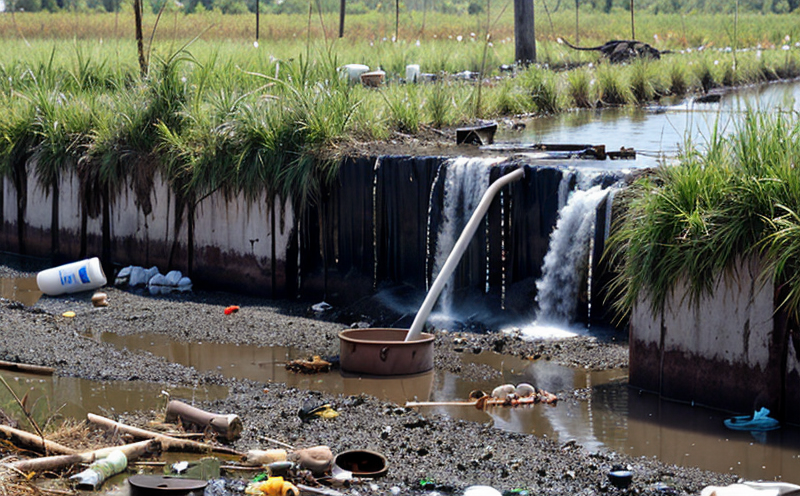Plastic Pollutant Testing
In recent years, plastic pollution has emerged as one of the most pressing environmental challenges. The breakdown and fragmentation of plastics into smaller particles have led to widespread contamination in oceans, waterways, and terrestrial ecosystems. This contamination poses significant risks to wildlife, human health, and the environment. To address these concerns, accurate testing methods are essential for understanding the extent and nature of plastic pollution.
Our laboratory specializes in providing comprehensive plastic pollutant testing services that adhere to international standards such as ISO 14024, ASTM E856, EN 13975, IEC 60990. These tests are crucial for environmental scientists, quality managers, and compliance officers who need reliable data on the presence, distribution, and effects of plastic pollutants in various environments.
The testing process involves several key steps. First, we collect samples from affected areas such as coastal regions, rivers, lakes, or soil. These samples are then prepared according to standard procedures laid out by our ISO 17025 accreditation. The preparation includes washing and drying the samples to remove any non-plastic contaminants.
Once prepared, the samples undergo detailed analysis using advanced instrumentation such as Fourier Transform Infrared Spectroscopy (FTIR) for molecular identification, Scanning Electron Microscope (SEM) for microplastic particle characterization, and Gas Chromatography-Mass Spectrometry (GC-MS) for identifying additives like flame retardants or plasticizers.
After analysis, our team generates detailed reports that include the concentration levels of different types of plastic pollutants present in the sample. These reports are vital for stakeholders to make informed decisions regarding remediation efforts and policy development.
Applied Standards
| Standard | Description |
|---|---|
| ISO 14024 | Life cycle assessment of products. |
| ASTM E856 | Determination of the presence and concentration of microplastics in water. |
| EN 13975 | Characterization of waste plastics used for energy recovery. |
Quality and Reliability Assurance
- We follow strict ISO 17025 accreditation guidelines to ensure the highest quality in our testing methods.
- All personnel involved in testing undergo continuous training in the latest methodologies and techniques.
- Audit trails are maintained for all tests performed, allowing for thorough review of every step taken during analysis.
International Acceptance and Recognition
- Our results comply with international standards recognized by environmental authorities worldwide.
- We are trusted partners for global organizations involved in environmental monitoring and policy-making.





